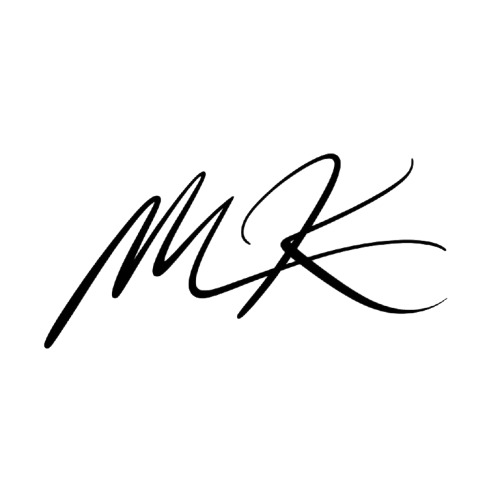Share
Hiring is one of the most critical decisions a business makes—and one of the easiest to get wrong. When the pressure is on to fill a role, many companies ask the same question: Should we hire a recruiter, or just handle it in-house?
It’s a fair question. Between the rising costs of hiring, an increasingly competitive job market, and a flood of unqualified applicants, the decision to outsource recruiting can feel risky. But it can also be the smartest move you make—if you do it for the right reasons, with the right expectations.
This article breaks down the real value (and potential drawbacks) of hiring a recruiter, helping you decide when it’s a strategic advantage—and when it’s just an expensive middleman.
What Recruiters Actually Do (Beyond the Job Title)
At the most basic level, a recruiter connects job seekers with employers. But the good ones do far more than pass résumés around.
Depending on their role and model, recruiters might:
- Write or refine job descriptions
- Source candidates through job boards, databases, and outreach
- Pre-screen applicants for skillset, availability, and compensation fit
- Coordinate interviews and candidate communication
- Manage negotiations and offers
- Maintain candidate pipelines for future roles
Internal recruiters work in-house and align closely with the company’s long-term goals and culture. Agency or third-party recruiters are often commission-based and may specialize in specific industries or roles.
Understanding that distinction is key—because not all recruiters are created equal, and not all add the same level of value.
When a Recruiter Adds Massive Value (And When They Don’t)
A recruiter can be a game-changer in the right context. But in the wrong one? They may just slow you down and cost you more.
✅ When They’re Worth It:
- If you’re growing quickly or need to fill multiple roles fast, a recruiter can keep your hiring engine moving while your team stays focused.
- Whether it’s software engineering or financial compliance, niche roles often require deep domain knowledge to screen properly—and recruiters with industry experience can deliver.
- Not all top talent is actively applying. Recruiters can tap into their networks and attract candidates who aren’t scanning job boards.
- A bad hire is expensive. Recruiters who vet thoroughly can reduce costly mismatches.
❌ When They’re Not:
- These roles often attract high volume and are easier to evaluate with an internal process.
- If your internal recruiters are effective and specialized, bringing in external help might create redundancy.
- A generalist who doesn’t understand your roles may just spam you with mismatched résumés.
What Recruiters Really Cost (And How to Make the Math Work)
Recruiters charge in different ways:
- Contingency-based: A percentage (usually 15%–30%) of the candidate’s first-year salary, only if a hire is made.
- Retainer-based: A fixed fee paid upfront for ongoing recruitment support.
- Flat-fee or subscription: A monthly charge for on-demand or high-volume hiring, often more affordable for startups.
That may sound steep—but compare it to the cost of a bad hire, which can reach $15,000–$50,000+ depending on the role and turnover time. Recruiters can also reduce the time a role stays vacant—a hidden but critical cost in productivity.
Pro tip: The key isn’t just the fee, but what you get in return. If your recruiter saves you weeks of screening and delivers a high-retention hire, the ROI often justifies the cost.
The Hidden ROI of a Great Recruiter
Even beyond time and cost, a skilled recruiter can improve your entire hiring process:
- Reduces Workload for Hiring Managers
Instead of screening 200 applications, your team interviews 3–5 curated candidates. - Faster Time-to-Hire
Recruiters keep the pipeline moving, reduce delays, and keep top candidates engaged. - Improved Candidate Experience
Professional recruiters communicate proactively and keep candidates informed—reducing ghosting and drop-off. - Stronger Cultural Fit
Recruiters who know your team well can screen for alignment, not just skills.
Better Retention
Quality hires that align with your needs are more likely to stay.
Workscreen Eliminates low-effort applicants—including those who use AI Tools to apply, copy-paste answers, or rely on "one-click apply." This way, you focus only on genuine, committed, and high-quality candidates—helping you avoid costly hiring mistakes.

What to Watch Out For: Common Pitfalls
Not every recruiter will deliver those results. Some common complaints from employers and candidates include:
- Résumé-slingers: Recruiters who simply forward every semi-relevant CV without real screening.
- Poor communication: Candidates being ghosted, hiring managers left in the dark.
- Misaligned incentives: Commissioned recruiters may prioritize volume over fit.
- Detachment from company culture: External recruiters may lack insight into your team dynamics and values.
If these red flags pop up, you’re probably working with the wrong recruiter—or relying on a flawed process.
How to Vet a Recruiter (Before You Commit)
Want to avoid wasted money and mismatched hires? Ask these before signing:
- What’s your industry specialization?
Recruiters who’ve worked in your field know what to look for. - What does your vetting process look like?
Listen for structure, not fluff. - Can you share placement data or references?
Look for proof of past success—retention rates, average time-to-fill, etc. - How do you communicate with candidates?
A recruiter’s approach reflects on your brand.
Will I get visibility into the process?
Transparency builds trust—and helps you stay in control.
The Rise of Flexible Recruiting Models
Traditional recruiters aren’t your only option anymore.
Modern businesses are increasingly opting for:
- On-demand recruiters who work like fractional team members.
- Flat-fee platforms with monthly pricing, ideal for fast-growing startups.
- Hybrid models, combining in-house screening with external sourcing.
These approaches offer more control, flexibility, and scalability—especially if you’re hiring across fluctuating volumes or budgets.
Easily administer one-click skill tests with Workscreen-This way you can assess candidates based on real-world ability—not just credentials like résumés and past experience. This helps you hire more confidently and holistically.

Recruiter or Not—You Still Need a Smart Process
Whether you use a recruiter or not, the biggest hiring mistakes often happen before a résumé is even seen.
No recruiter can save a hiring process that:
- Lacks a clear job description
- Fails to define success metrics for the role
- Doesn’t evaluate actual job-relevant skills
- Ignores team dynamics and values
In other words, recruiters can be a strategic lever—but they can’t fix a broken process. That part is still on you.
So… Is Hiring a Recruiter Worth It?
Yes—if you’re intentional about it.
Hiring a recruiter is not a magic bullet. But in the right context, it can be a massive accelerant. It frees your team, improves hiring accuracy, and gives you access to talent you might not reach on your own.
Just don’t mistake having a recruiter for having a hiring strategy. Because at the end of the day, you’re not just filling a role—you’re building a team. And that’s too important to leave to chance.
Quickly identify your most promising candidates. WorkScreen automatically evaluates, scores, and ranks applicants on a performance-based leaderboard—making it easy to spot top talent, save time, and make smarter, data-driven hiring decisions.

FAQ
A: Recruiters can be valuable when you’re hiring for executive, technical, or confidential roles—especially when the right talent isn’t actively applying. They also help when internal capacity is maxed out. But for common roles or high-volume hiring, modern tools like WorkScreen.io offer faster, more cost-effective alternatives.
A: An HR recruiter is usually in-house and part of the broader HR team, handling tasks like compliance, onboarding, and internal coordination. An external recruiter (often agency-based) works on commission and focuses purely on sourcing and placing candidates—sometimes without deep knowledge of the company or role. This disconnect can lead to misaligned hires.
A: In theory, yes—especially if they specialize in your industry. But in practice, many recruiters rely on resume scraping, LinkedIn outreach, and keyword filters. Platforms like WorkScreen.io remove the guesswork by directly testing and ranking candidates based on real-world ability, ensuring you’re not just hiring the most polished resume.
A: Not always. Traditional recruiters charge 25–100% of the new hire’s salary, plus retainers in some cases. If you’re hiring multiple people or recurring roles, this cost adds up quickly. A smarter move is to invest in a hiring platform that gives you repeatable, consistent quality without the overhead—which is exactly what WorkScreen.io is designed to do.
A: WorkScreen.io automates screening, ranks candidates based on performance, and filters out low-effort applications—without charging commissions. You get structured insights, faster decisions, and more hiring confidence. It’s ideal for teams who want control, speed, and quality—without relying on external recruiters to do the heavy lifting.

